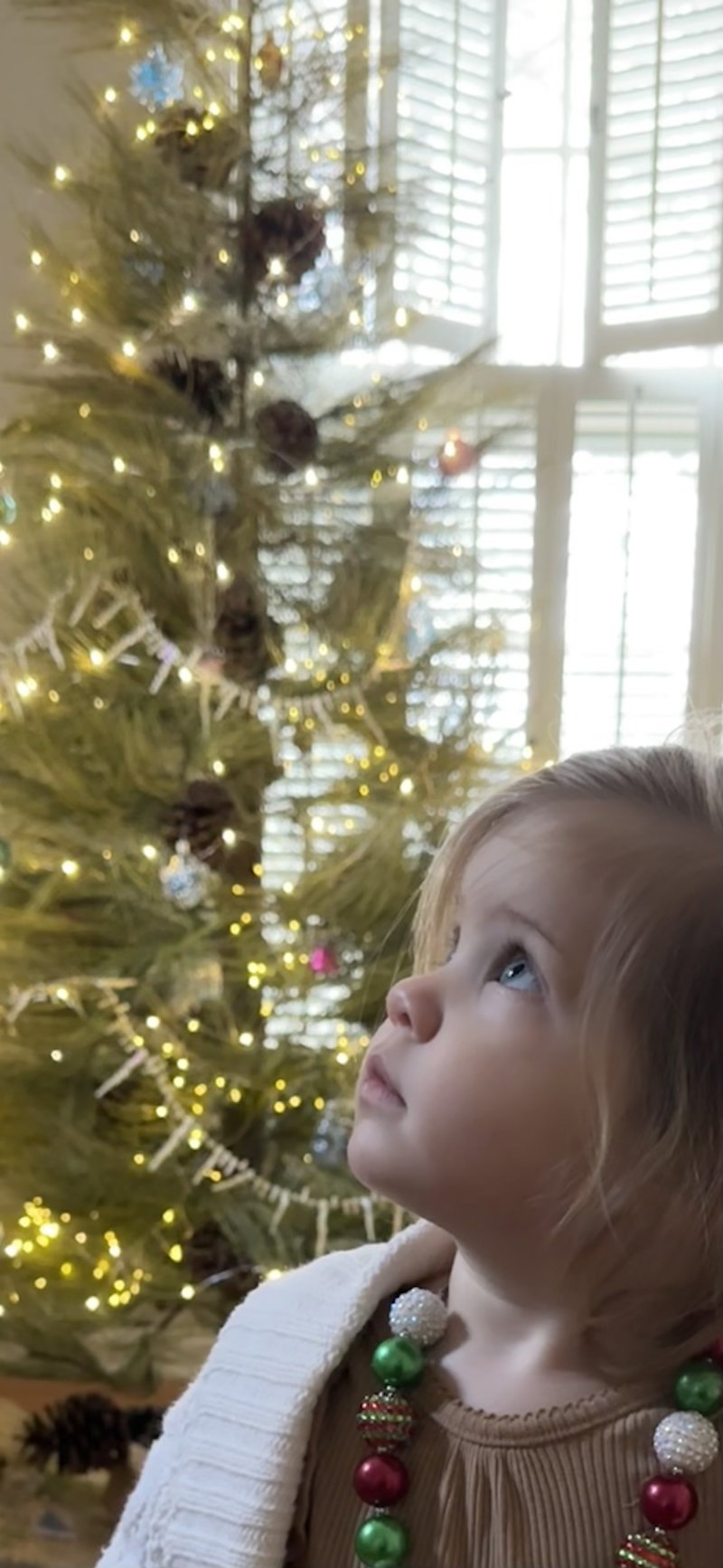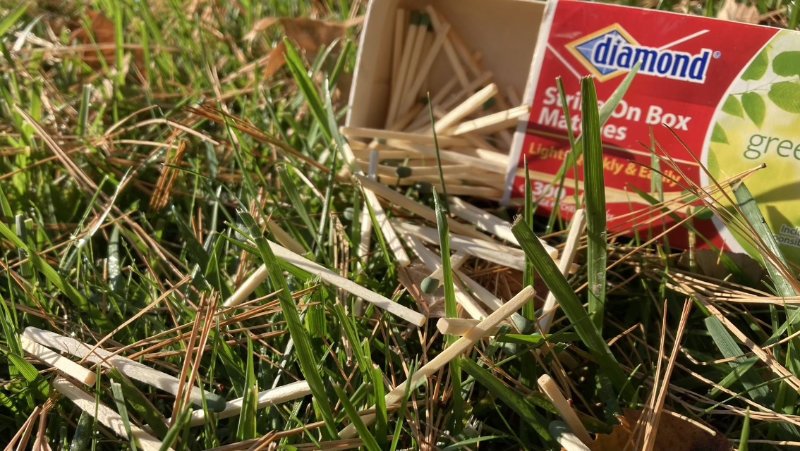Maybe some of you remember an old movie called Money Pit. In it, Tom Hanks and his new bride try to restore a hopelessly dilapidated home. Succumbing to one construction disaster after another, Hanks carries buckets of water up a makeshift staircase so that he can escape his problems in the luxury of a warm bath. As he pours the last bucket of hot water into the porcelain tub, the foundation of the rotted-wood floor gives way, and the bathtub makes a disastrous descent to the floor below, shattering and dumping water everywhere. It is a sublime moment for Hanks as he carefully looks over the gaping hole. He begins quietly to whimper quietly at first, a whimper that turns into a long wail, then turns into a desperate, out-of-control laugh as he realizes the house is truly hopeless.
Like in this scene with Hanks, there are times in life that leave us feeling like laughing and crying at the same time, and frozen in a tsunami of sentiments on the emotional scale. Such was the case recently when I opened a letter, addressed to my father, calling him to report for jury duty. He is one hundred and one years old.
I felt like I was being hit with a bucket of cold water. I burst out laughing, then let out a wail in anguish. I couldn’t decide whether the letter was a slightly off-color dad joke or serious request for my father to become a part of our judicial system, and I made an undefinable noise in my throat that sounded like I was choking on a piece of raw meat. I think I may have pulled a muscle in my throat, I’m not sure, but my windpipe had never tried to laugh and cry at the same time.
Looking at the jury duty request, a thousand questions raced through my mind. Over the span of the last century, even though he was a urologist, I have come to know my father as one of the last renaissance men, able to converse freely on just about any subject. If selected for a jury, I wondered – would he try to reorganize the entire judicial system, taking on all the roles? Would he insist on playing the part of the trial lawyer, the judge, the entire jury and even possibly the criminal? I fear my father’s selection and integration into the courts might very well be the end of justice as we know it in this country and the speed bump in my throat was swelling by the minute.
I have a lot of images of my father that have accumulated over the years, images of him in any number of roles and characters, but none of them look like a century-old juror sitting in a courtroom listening to opening arguments on a twelve-person jury. I have an image of him in uniform in Korea, holding a rifle. Being that my father never killed an ant, that is a very frightening picture. I have an old-tattered picture of him leaning against a 1960 red convertible Thunderbird, which is scary also, because he totaled it running into a pilon taking a shortcut through a stadium parking lot. And who can forget that very awkward photograph of him in Egypt sitting backwards on a camel while my mother sat facing him? In real life, that is not a picture my parents should have shared with us, but there it is.
Peacefully making myself a cup of detox tea, I sat myself down like a good parent does and thought about how to handle this elderly situation. On so many levels, I could make a clean case for removing him from his jury duty duties, but then I felt, being the somewhat excessive person I am, to let Dad weigh in on the questionnaire himself, so I drove out to the nursing home to begin my interview.
“Dad,” I began, sitting across from him, “guess what? You’ve been selected to serve on jury duty!”
“Whose JUDY? Judy who? I don’t know any Judy. Is she a nurse here? Tell her I need a shower! And I’m out of Q-tips.”
“NO, Dad, JURY, not Judy. You’ve been selected to serve on a JURRRRY,” I repeated.
“Ohhhhhhh, jury. JURY?! I can’t do that today. I’m too busy. I’ve got Dog Bingo at nine, then I take a nap before lunch, and then I have to be in the front room by one o’clock for Pilates with Penelope. I’ll just have time for my medicine before Happy Hour, where I’m giving a short talk on urinary retention.
Oh,” I said, “that should be interesting. How many have signed up for that special grouping?”
“POOPING?” He looked down at me with furrowed eyebrows. “No. We don’t use that word in urology. We have other terms for relieving yourself.”
“Dad, you don’t have to serve if you can’t,” I explained.
“Serve on jury duty? What have I done this time?” He snapped back.
“Dad, you are fine, you haven’t committed any crime…uh… wait a second. Dad, have you committed a crime you haven’t told me about?”
“I’M INNOCENT!” He suddenly yelped. He rose out of his wheelchair, abruptly raising both arms in celebration, as if he had just won a shuffleboard contest. That was a lot of unnecessary excitement, not altogether appropriate, I thought, but I was relieved to hear that he hadn’t done anything outrageous, and I reset my sights on going over some of the jury questions with him. Nine hours later, although Dad’s candidacy for serving was not looking super strong, he still retained the possibility of becoming a juror. In his favor, he was alive, that was clear, and secondly, he had been able to stay awake through the twenty-seven questions on the form, answering most of them in less than an hour. Most importantly, Dad did not yell at me when I banged his bed with the gavel, I bought off Amazon Prime, the kind the judge would be using in the courtroom. I wanted Dad to get accustomed to any sudden noises if the Judge banged his gavel and demanded order in the courtroom.
“Only a couple more questions, Dad,” I said, “These are ones the lawyers are going to be paying special attention to, so listen carefully. Are you ready?” I asked looking at him.
He moved his wheelchair in tight to listen. I began to read him a wordy, open-ended question, that boiled down to this: Dr. Bender, “As we select out jury, would you care to tell us a little about yourself and anything else you feel would give us an idea of who you really are?
When I looked over at my dad, I watched his face change from a wry smile to stern stare, and back again. He was looking out the window in his room, to the courtyard of the nursing home, but he was looking at a passing history –
–to a time when he was bathing his younger brother, who died of MS when he was fourteen, and a place in history where crowds of panicking people stormed bank doors as the stock market crashed in ’29. His was a face that had seen the images of thousands of Jews trapped in Nazi concentration camps. My dad had that history in his wrinkled brow, each wrinkle carved from a difficult, lonely stint somewhere in the Pacific during the Korean Conflict. He was still out there, I could see, as he recounted his life for a young lawyer, or a youthful judge, who might know the law backwards and forwards, but had not lived through the Cuban missile crisis, or Watergate or done surgery out of a MASH unit. Those would be flashing through my father’s head, but there would be more memories too in this life, of a father too who saw his oldest son get hit in the side of the head with a hardball and go down in the dirt unconscious, or the pride he felt as his daughter graduated from Nursing school, or the words of the 23rd Psalm, which he prayed with my mother every night before they went to bed. Then, there was always worry and concern raising three kids – how we’d all turn out while he was trying to hold down a medical practice at three different hospitals, and for God’s sake how his middle son would ever succeed if he couldn’t remember to take the garbage out every night.
All that history was there, a century of it, in every word and every expression on his face, and although the jury was still out, the stories he could go on and on about would certainly fill a courtroom.
“Dad. Dad. Hello, are you there?” I asked, but he was still there in every expression on his face, completely there, and had been, for a hundred plus years. He had answered all the questions, and although his answers may not qualify him for a seat on a jury, they reserved him a seat somewhere even better, an honorary seat at the head of the table of history and a life well served.






















